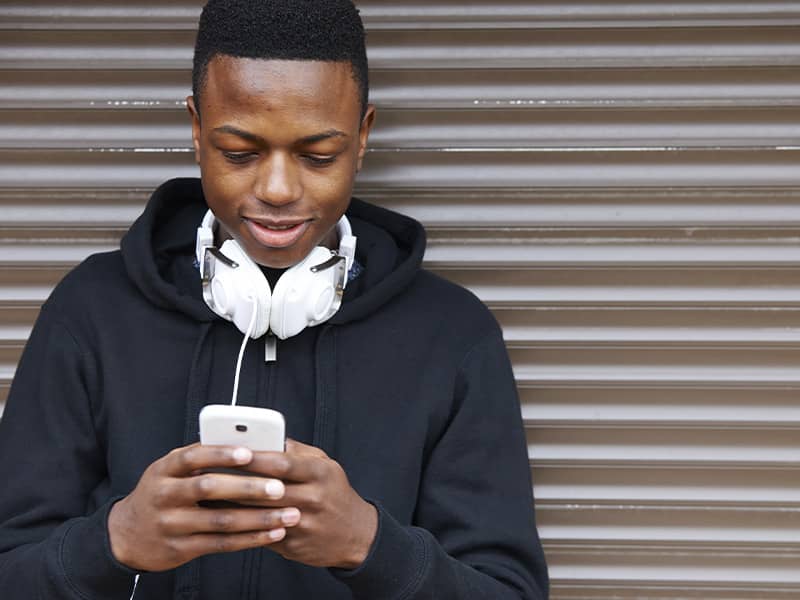I remember thinking, "How could a liquid--something similar to lemonade, if you really studied it--have the power that she describes?"
I became curious. Alcohol was the apple in my Garden of Eden.
I was 14 when I had my first drink. My mom and her boyfriend were taking my twin sister and I on a trip to Florida for our spring break from school. The two of us set out for the beach with my stepsister and a friend of hers when some guys approached us and invited us to go on a boat ride. We accepted the invitation.
While we were on the boat, one of them offered me a beer. I was scared. I said no. But later they asked us to a party, where they were making all kinds of "fluffy drinks," as they called them, like strawberry daiquiris, piña coladas, and wine coolers. These, I rationalized, were not as bad as beer. So I indulged and drank a fruity wine cooler.
I was by no means drunk, just slightly buzzed. But I remember the euphoric, numbing sensation that crawled down my back and relieved every nerve and tension in my body. I had always had trouble relaxing and losing my consciousness of self, but this did the trick. It was comparable to the first few moments in a whirlpool, a spontaneous orgasm, or (you may think this is strange) . . . a spiritual awakening.
It makes sense that booze is referred to as "spirits" or "water of life" or some such in almost every language. The ecstatic "out-of-body" experience that happens as a result of alcohol going to work on the neurotransmitters in your brain can imitate an intense spiritual experience, a sort of beatific vision like those described by Christian mystics, especially Teresa of Avila, John of the Cross, and Catherine of Sienna.

Therese Borchard is the author of several books for adults, teens, and children.
I sought this experience through alcohol over and over again, until it required more and more substance. The ecstatic sensation became increasingly difficult to attain and sustain. It took more booze to get to that "great buzz"; and it lasted a shorter time before I passed into a "not-so-great buzz." During those buzzes, or rather drunks, I was apt to commit all kinds of acts that later embarrassed me.
I began to dread the "mornings after," when memories of the events of the previous night woke me up like a "Rocky Horror Picture Show," featuring me as one or all of the obnoxious and rude characters. Or, worse yet, I'd learn of my behavior from a trusted friend later in the week, when it was too late to clean up the mess I'd caused.
In a nutshell, I was becoming a person I wasn't proud of. I had begun to pay a high price for the few minutes of euphoria produced by alcohol. A spiritual war inside me had begun. On the one hand, I was addicted to the ecstatic, freeing effect of booze; yet I was disgusted by the "not-so-spiritual" consequences of seeking that effect.
After trying to tame my drinking again and again--after trying, in vain, to learn the concept of moderation--I gave up and quit swallowing the stuff altogether. I began to seek alternative highs, albeit sober ones, which--I am pleased to report--not only last longer and are more dependable, but empower you to become a person of integrity. These sober highs--running, spiritual reading, letter writing, biking, travel, good friends, swimming, support groups, nutrition programs, golf, church, long walks, prayer--help me to relax and connect, as alcohol once did, but also help me to achieve some semblance of balance in my life.
I have learned that there are three types of drinkers. There are social drinkers--the types that can enjoy a drink once and awhile, even every night, without ill effects. There are those who experiment for a time, or binge every so often, without any real destruction. And there are those who, for whatever reason, cannot handle booze--whose bodies and minds and spirits do not process it properly. Unfortunately, I fall into the final category.
My husband says that I was born without an "off switch." That image helps me when I am battling some element of my compulsive behavior--be it in my diet, my exercise schedule, or my work load. Some people are just plain better at balance. I have to work at it. And learning about it doesn't automatically make it happen, just like having an mother in Alanon didn't preclude my joining the drunks. But this part is true: Everything gets easier with time.

